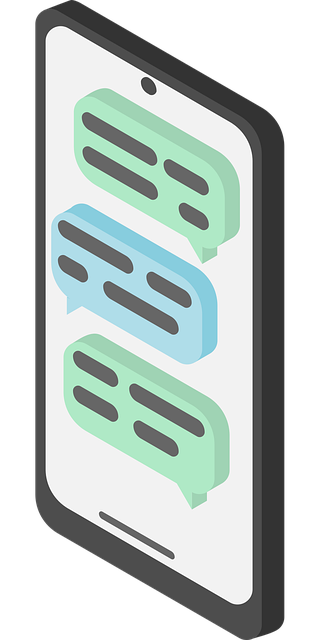During election season, strict laws like the TCPA limit sales calls in New York. To stop spam calls effectively, individuals can:
1. Utilize built-in call blocking features on their devices.
2. Register their numbers on the National Do Not Call Registry.
3. Consult a reputable Spam Call law firm in New York specializing in TCPA to navigate legal protections and seek compensation if eligible.
During election season, unwanted sales calls can flood your phone, disrupting daily life and adding stress. To combat this, follow best practices tailored to New York’s regulations. Learn how to identify and block spam calls effectively, understand your legal rights with a TCPA lawyer in New York, and implement privacy measures to safeguard your number. Reporting unwanted calls is also crucial. This comprehensive guide equips New Yorkers with tools to navigate election season without disruptive sales calls, ensuring a quieter, more peaceful experience.
Key words: How to Stop Spam Calls New York, Spam Call law firm New York, Spam call lawyers New York, TCPA lawyer New York.
Understanding Election Season Regulations on Sales Calls
During election season, there’s heightened awareness around regulations governing sales calls. In New York and across the country, strict laws like the Telephone Consumer Protection Act (TCPA) limit how businesses can contact consumers via phone. Understanding these rules is crucial for both businesses looking to avoid penalties and individuals seeking to curb unwanted spam calls.
If you’re a business in New York, consult with a reputable spam call law firm or lawyer specializing in TCPA compliance. They can guide you on permissible practices, such as obtaining explicit consent before making sales calls and providing clear opt-out mechanisms. For consumers facing incessant spam calls, consider registering your number on the National Do Not Call Registry and exploring legal options through a TCPA attorney in New York if your rights are violated.
Identifying and Blocking Spam Calls Effectively
Identifying and blocking spam calls is an effective way to protect yourself during election season and beyond. In New York, where strict Spam Call laws are in place, recognizing these unwanted intrusions is crucial. Many phone numbers are now registered, allowing individuals to block specific areas, including those associated with political campaigns or telemarketing firms. Utilizing built-in call blocking features on your device is a simple yet powerful step. These tools learn from your preferences and automatically filter out spam calls.
Additionally, engaging the services of a reputable Spam Call law firm in New York can offer comprehensive protection. Their expertise lies in navigating the Telephone Consumer Protection Act (TCPA) and ensuring compliance for businesses. As an individual or business owner, consulting with these lawyers provides peace of mind, especially when dealing with persistent or harassing calls. They provide guidance on legal blocking methods and help establish protocols to avoid unwanted contact, allowing you to focus on what matters most during election season.
Legal Rights and Options: Engaging a TCPA Lawyer in New York
In New York and across the nation, there are strict laws in place to protect individuals from unwanted sales calls, particularly during election season. The Telephone Consumer Protection Act (TCPA) provides robust legal protections for consumers, allowing them to take action against violators. If you’re facing a deluge of spam calls, understanding your rights is crucial. Engaging the services of a TCPA lawyer in New York can be a strategic move. These attorneys specialize in navigating the complexities of the TCPA and have extensive experience dealing with spam call cases.
A New York spam call law firm can help you determine the best course of action, whether it’s registering your number on national “Do Not Call” lists, seeking damages for violative calls, or enjoining companies from contacting you in the future. With their guidance, you can not only stop the unwanted calls but also hold responsible parties accountable, ensuring compliance with the law and a quieter, more peaceful communication environment during elections and beyond.
Implementing Phone Number Privacy Measures
In today’s digital age, phone number privacy is more important than ever, especially during election season when unwanted sales calls can increase significantly. One effective way to combat spam calls in New York is by implementing robust privacy measures. Start by registering your phone number on the National Do Not Call Registry, a federal database that restricts telemarketers from calling numbers listed on it. In New York, there are also state-specific do-not-call lists and laws, such as those administered by the New York State Attorney General’s office, which offer additional protection.
Additionally, consider hiring a law firm specializing in TCPA (Telemarketing Consumer Protection Act) litigation to enhance your privacy. These firms can help you navigate the legal framework surrounding spam calls and provide tailored advice for your situation. By combining these strategies—registry registration and professional legal assistance—residents of New York can significantly reduce the number of unwanted sales calls they receive, making election season less chaotic and more enjoyable.
Reporting Unwanted Sales Calls: A Guide for New Yorkers
In New York, as across the nation, election season brings an increase in sales calls and political messaging. While many legitimate businesses continue their usual practices, unwanted spam calls can surge, causing frustration among residents. If you’re receiving excessive or harassing sales calls, it’s crucial to know your rights and reporting options.
New Yorkers have several avenues for addressing spam calls. First, familiarize yourself with the Telephone Consumer Protection Act (TCPA), a federal law that prohibits certain types of automated telemarketing calls without prior express consent. You can report these unwanted calls to both state and federal agencies, such as the New York Attorney General’s Office or the Federal Trade Commission (FTC). Additionally, consider registering your number on the National Do Not Call Registry. For specific legal assistance regarding spam calls, consult a law firm specializing in TCPA cases; they can guide you through options for holding telemarketers accountable and seeking compensation if eligible.






